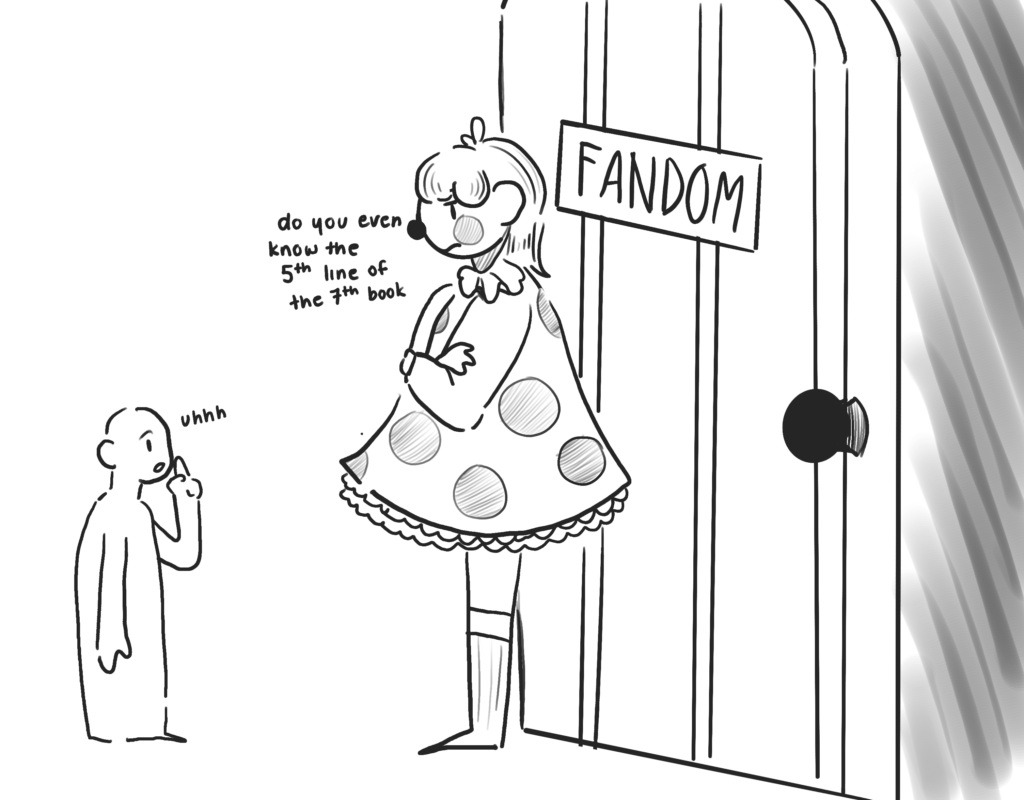
On the weekends, I often enjoy walking to various parks and fighting bosses in “Pokémon Go.” It’s a casual, low-stakes game that helps me relax and destress, but sometimes, my friends who play more “hardcore” games like “Counter-Strike: Global Offensive” and “Call of Duty” laugh at me and say, “Why are you playing Pokemon Go? It’s not even considered a real game. If you want to be a true gamer, you should come and join us.”
While I don’t really care if I’m a “true gamer,” I feel left out of their circle when I hear those remarks. This is a form of gatekeeping because it involves determining who is considered a legitimate member of a community or subculture. The standards my friends impose are arbitrary and dismissive of my feelings.
The motivations driving gatekeeping are multifaceted. Some may try to preserve the sense of identity and prevent diluting the unique characteristics and values that define the group. Others are fueled by the desire to maintain scarcity within a community.
Gatekeeping appears in many different places. It can pop up in casual conversations and random threads on the Internet. Earlier, when I was scrolling through my feed on Twitter, I noticed a post that said that a person with a doctorate in musicology shouldn’t have the title “doctor.” This showcases the harmful effects of gatekeeping—it invalidates others’ feelings and efforts and displays a resounding lack of empathy.
Testing new individuals is another tactic to subject them to certain criteria or standards to assess their legitimacy within the group. Once, I joined a WeChat group dedicated to discussing the Romantic period of classical music. The group owner monitored the conversations and kicked out any users who did not seem to have any basic classical music knowledge. Although one could argue this was done to keep out the distractions, to me it felt unfair because it discouraged newcomers who just want to learn about classical music.
Gatekeeping could also be withholding information to keep a sense of “superiority.”
During a 2019 YouTube video giving viewers a tour of her office, media personality Kylie Jenner was unwilling to share her favorite drink with her fans, concerned that it would sell out. The nature of these motivations is essentially the same—a craving to feel special and exclude others.
Gatekeeping has penetrated all aspects of society.
“If someone asks, ‘Hey, where’s your shirt from?’ … people [will say], ‘Oh, I don’t know. I got it from a random place,’” said sophomore Emily Jane Vincent. “They know where it’s from, [but] they just want to hide it and keep it for themselves.”
Gatekeeping is harmful because it tends to hinder diversity, stifle creativity, deter new members and impede innovation. It is certainly detrimental to feel ostracized when others purposely withhold information.
Gatekeeping has penetrated all aspects of society. It significantly shapes and skews perceptions, opportunities and access to information. Whether through not letting others into an exclusive group or title for not being good enough, or through withholding information from others in order to keep it exclusive, gatekeeping has destructive results that often ostracize people, which can often negatively affect people’s mental health.



